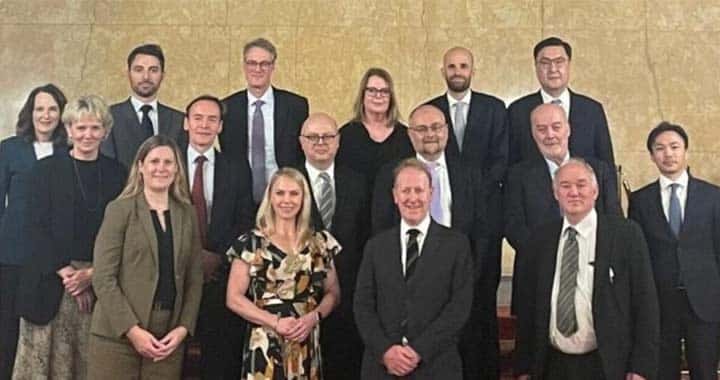The G7+ Special Representatives for Afghanistan have issued a strong warning to the Taliban over persistent human rights violations, urging them to reverse restrictions on women and girls and to adopt an inclusive political process. The envoys stressed that Afghanistan cannot achieve stability or prosperity without political pluralism, inclusive governance and constructive engagement with the international community.
In a joint statement following their September 29–30 meeting in London, envoys from the United States, United Kingdom, European Union and more than a dozen partner nations reaffirmed their commitment to supporting the Afghan people “amidst ongoing humanitarian, economic, and political challenges.”
The representatives voiced “deep concern” at the Taliban’s continued denial of basic rights and fundamental freedoms, particularly for women and girls. They condemned bans on female education and employment, restrictions on healthcare and participation in public life, and the recent order preventing Afghan women staff from entering U.N. compounds.
The gathering also addressed Afghanistan’s deepening humanitarian crisis, underscoring the devastating September earthquake, the mass deportations of Afghans from neighbouring states, and the urgent need to pre-position humanitarian supplies before winter. Delegates highlighted the essential role of international financial institutions such as the World Bank and Asian Development Bank in sustaining critical services for the Afghan population.
Security concerns featured prominently in the discussions. Officials noted the persistent terrorist threat emanating from Afghanistan and its impact on cross-border migration and regional stability. They explored avenues for closer cooperation with regional partners to strengthen counterterrorism measures.
Envoys welcomed updates on the UN-led “Comprehensive Approach” and expressed hope that the UN Secretary-General and the incoming Special Representative for Afghanistan would advance a unified international strategy.
The London meeting brought together representatives from Australia, Canada, Denmark, France, Germany, Italy, Japan, the Republic of Korea, Norway, Switzerland, Türkiye, and the European Union, along with the United States and United Kingdom. The participants were also briefed by Georgette Gagnon, the UN’s acting envoy for Afghanistan.
The G7+ format uniting the G7 nations, the EU and key partners has met regularly since 2021, issuing joint declarations pressing the Taliban to reverse bans on women’s rights, respect human rights, permit humanitarian access, and prevent Afghan territory from being used as a base for terrorism. The group has consistently raised alarms over worsening humanitarian conditions.
Officials underlined that the G7+ nations provide the bulk of humanitarian assistance to Afghanistan and wield significant influence over international financial institutions. They stressed that coordinated diplomatic pressure, humanitarian aid and financial leverage will continue to be applied to press the Taliban toward inclusive governance, while ensuring life-saving assistance reaches Afghanistan’s most vulnerable communities.
“Afghanistan’s future must be one of stability, inclusivity and respect for human rights,” the envoys concluded, warning that without meaningful change, the Taliban risk further isolation from the international community.





